Creators and Industry Folks Share What Stood Out From the World of Comics in 2024
I’ve said it before and I’ll say it again (probably next week, even): It’s been a heck of a year in comics. The comics and graphic novels of all varieties have been great, there have been a ton of them, and what’s out there covers basically every genre you can possibly imagine. I know that, and will write about that at great length starting next week as my year end awards begin.
But I’m just one person, and my opinion only represents my viewpoint. That’s interesting, but it’s limited. So, to begin my year end coverage, I wanted to expand beyond myself and highlight what others enjoyed and/or simply noticed from the year. I do this every year, to some degree. But this time it’ll be a bit different. I normally try to make this more comprehensive, asking creators and other folks from comics a number of questions about the year that was. That’s interesting, but it’s really too much. So, instead, I turned this effort into a choose your own adventure type experience by asking everyone for one thing that they really noticed from the year. More specifically, each person was asked the following question:
It’s been a big and interesting year in comics, and for a whole lot of different reasons. To tap into that, I want to know about something you really, really loved from it. What was one favorite thing — it doesn’t have to be your absolute favorite thing, just something that stood out to you — from the year of comics for you? Also, it doesn’t have to just be a comic. It could be one, or it could be a graphic novel, a panel or page, a cover, a creator who stood out, a line of books, a trend, a convention experience, or whatever.
My hope was that this would open things up and generate a more interesting result. I was right. It absolutely did. The folks I talked to did not disappoint, as the answers ranged from comics and graphic novels to trends and even comic conventions. It’s a great mix of perspectives on the year that was in comics, and you can read it all below. The answers are organized alphabetically by the contributor’s last name, and it’s open to non-subscribers. As a reminder, though, if you enjoy what you read, please consider subscribing to SKTCHD to support the work that I do and to read more of it. It makes a massive difference in keeping an independent site like mine going.
Julio Anta (This Land is Our Land: A Blue Beetle Story): My favorite thing in comics this year was friends! I don’t know if anyone has ever linked an increase in comic convention and book festival appearances with improved mental health, but it sure did the trick for me! Getting to see my friends from all over the world every couple of months at was a true joy.
On top of that, a few creator and editor friends started a monthly graphic novel book club that has been a lot of fun, and Jacoby Salcedo, one of my closest collaborators and best friend spent a couple of months in New York. It was very much like the first half of Look Back where Ayumu and Kyomoto are just having the best time hanging out and making comics every day… without the tragic second half.
All of that to say – community is important and I’m incredibly grateful for my friends in comics. Here’s to seeing even more of each other in 2025!
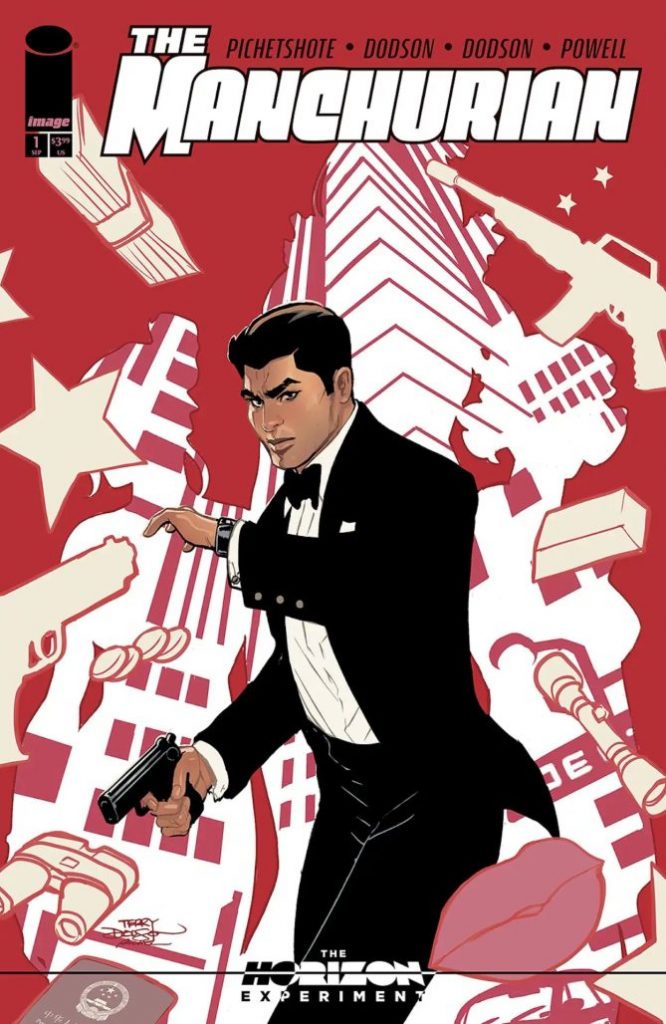
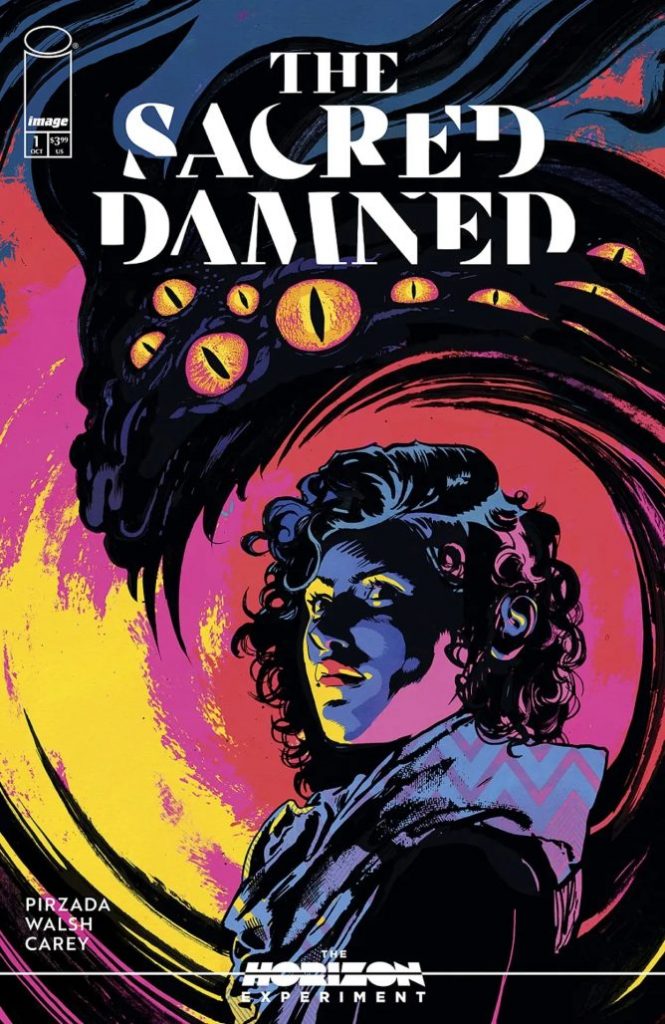
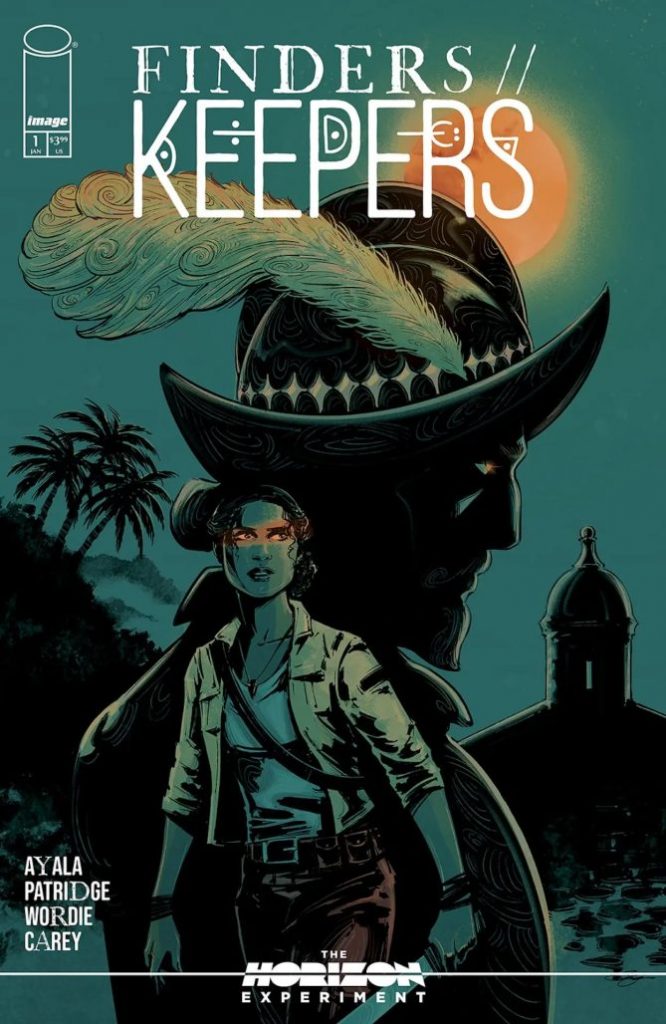
Vita Ayala (The Horizon Experiment: Finders/Keepers): I struggled with this question because I have been pretty disconnected from the industry the last two years, but still reading and writing. There are a few things that I could talk about here, but I think the thing that I keep coming back to (and thought of first) is something I am involved directly in: the Horizon Experiment.
I picked this for two reasons.
First, having been involved, the joy and energy and community of it is something I have experienced first hand. It has been such a wonderful experience, as a creative and as someone who loves stories and wants to be a part of uplifting stories. The joy of being a part of a collective of people who are, while working on our own projects, deeply invested in the work and success of our fellows really restores the love of the industry. It is hard to explain how truly invigorating and inspiring working in this sort of group is—it reminded me a bit of the X-Room, in the best way!
Second, completely separate from my participation, I really love this kind of initiative as a model for producing comics from perspectives that are traditionally (and still very much) underrepresented. I think that this is a great opportunity to develop a framework to provide an avenue for entry into the industry for newer voices that would otherwise struggle to get work. I know Image/Top Cow did (still does?) stuff like this, but if we are going to survive as an industry, there needs to be an apparatus for new people to enter, and the onus should be on companies and not individuals to make it happen. I think what Pornsak and Will are doing here is important work, and I want to see publishers pick up the baton and build these kinds of programs into their structures!
Murewa Ayodele (Storm, Akogun: Brutalizer of Gods): My favorite part of the comic book industry this year is the strong decentralization of talent and quality stories across publishers. I’m used to the most interesting stories and talents coming from DC, at another era — Marvel, then to Image Comics, Vertigo, Dark Horse, back to Marvel, DC, Image Comics, Boom Studios for a while, etc. I’m sure I’ve screwed up the order at some point there, but I’m positive you understand the gist of it.
Every publisher right now desires to have their very own golden goose, and that has led to Daniel Warren Johnson helping spearhead the Energon Universe, Kelly Thompson doing the same for the Absolute Universe, Declan Shalvey for Dynamite Comics’ Licensed Properties, Gail Simone for the X-Line, etc. These are all creators, amongst many others, we (the audience) have known had something special for a while now but publishers held themselves back from putting them at the forefront of various initiatives. The current industry’s need to have many smaller successes rather than a very few massive ones has helped push a lot of creators’ careers and birth some pretty unique mainstream comics. For crying out loud, Jonathan Hickman is making an Aliens vs. Avengers comic that is more than just a “popcorn” comic one would expect from such a title. Publishers are taking more risks and I love that.
Juni Ba (The Boy Wonder, The Fables of Erlking Wood): I think I’d have to pick Thought Bubble itself. I’ve been to a few shows now of various sizes and this remains the most comics focused, people-friendly event I’ve gone to. It isn’t the big mercantile comic cons boosted by corporations, or the rather more pretentious French ones. It’s simply about sharing and supporting art that means something to people, directly from the creators. In fact i had a talk with a French editor who was visiting it for the first time and he was impressed by how chill, open and friendly it all is. So hm yay Thought Bubble!
Jordan Blum (Minor Threats): My answer would just be DC comics in general. For the first time possibly ever I might be reading the entire line…and enjoying all of it! It feels cohesive, fresh, classic and experimental all at the same time. Don’t get me wrong, I Iove (and will read) Batman but now I’m also getting The Question, Metamorpho, Challengers of the frickin’ Unknown! What a time to be alive.
Kelly Sue DeConnick (FML, Wonder Woman Historia): It’s tough to narrow down just one thing because it’s been such a fascinating year, but a few things have really stood out to me.
First, the DC Compact Comics line—it was this year, no? The industry has been experimenting with size and format for a long while now, but the cohesiveness of the design on this line elevates it. There’s a literary vibe. It feels like a code has been cracked, and I’m excited to see where it goes.
Second, comic book podcasts. I’m a heavy podcast listener, and it seems to me that industry podcasts have leveled up in terms of both production quality and content. It’s entirely subjective and I should say, I’m not a fan of the “two friends just shoot the shit” model though I know it works for a lot of people, but I’ve noticed a trend toward more disciplined and useful shows, which I appreciate.
Third, young creators. There’s this energy that comes with what feels like a new wave brewing—”young” is relative, of course, and I’m 54, so even seasoned pros might feel new to me—but I’ve been impressed by creators like Ethan S. Parker and Griffin Sheridan, Caitlin Yarsky, and Danny Lore. It’s been a while since I felt like there was something like this coming.
Lastly, the return of newsprint journalism. I’m subscribed to the print version of The Onion, and I’m psyched for Tiffany Babb’s The Comics Courier. Ron Wimberley’s LAAB isn’t new, but still feels like part of this movement, and Chip Zdarsky’s newsprint thing too, of course. Honestly, I don’t know how Chip does everything he does—it’s infuriating—but his constant inventiveness is inspiring.
So yeah, it’s been a great year for experimentation, innovation, and just plain good work. A lot to celebrate.
Kieron Gillen (The Power Fantasy, We Called Them Giants): The trend which has has delighted me for the early part of the year was the cresting wave of increasingly horny work from mainly non-dude creators in the Direct Market. I’d trace it back some years to Mirka Andolfo, I suspect, but Maria Llovet and Luana Vecchio. It’s always been there in the webcomic spaces, but to see it cross over and Tula (Lotay) and Becky (Cloonan) get an Eisner for Somna seemed like a moment. Much more to come too – folks like Chloe Brailsford look like having a big 2025 too. It’s certainly made me chew over the relative chasteness of my own work, though I’m also aware “relative” is carrying a lot of weight here.
But now we hit the back end of the year, what most makes me happy is a sense that creators are looking at community again, and ways to tie people and books together. As twitter imploded across the last decade, the tendency has to be to go more atomic – the proliferation of mailing lists is a good symptom of that. In a world where our connections have been poisoned by corporation, we have to save what we can. But now, there’s more of a sense that’s self defeating. Comics is an ecology, and working out ways to seed community is paramount. I think the Bluesky germination is a part of that – we get to build again. What do we do this time? I’ve had more conversations about mutual aid with creators in the last year than I have had for years. We’re in this together. Every comic is a panel in a larger story. That kind of thing. Hell, I was chewing over “maybe I start a comic reading group in my town I’ve just move to?” and that was before the recent discussion over exactly how France’s scene happened – which was local initiatives across France in the 1960s. The lesson of the last 15 years is we simply can’t trust tech to do this, as it can’t, and even if it does briefly, it will sweep it all away a second later for the amusement of capital. That more and more people are not just realising that, but acting upon it, is a thing which I hold on for optimism about this fallen world.
I have also been enjoying Public Domain.
Liana Kangas (Know Your Station, TRVE KVLT): I’ve never read a *holiday horror series* before. For me, comics are my full time job, so it’s rare when a series can stand out amongst themselves and give me the rush I’m looking for /past the point of constantly recognizing the process!!!/
A week ago, I was discussing The Deviant with my friend MH, being starved for the final issue, while appreciating that the release date is REARING around the corner, giving the utmost FULL IMMERSIVE EXPERIENCE for the season. While I collect all of James Tynion IV’s books and could probably try to annoy Josh Hixson about the series on a peer or inquisitive level, I feel so dissociated from the media because of how immersive it is. It’s one of the first stories in a while that distracted me from the creators to focus solely on the storytelling. It feels like a gift in itself. I get to steep my brain and eyeballs in the craft while mentally respecting and enjoying their work.
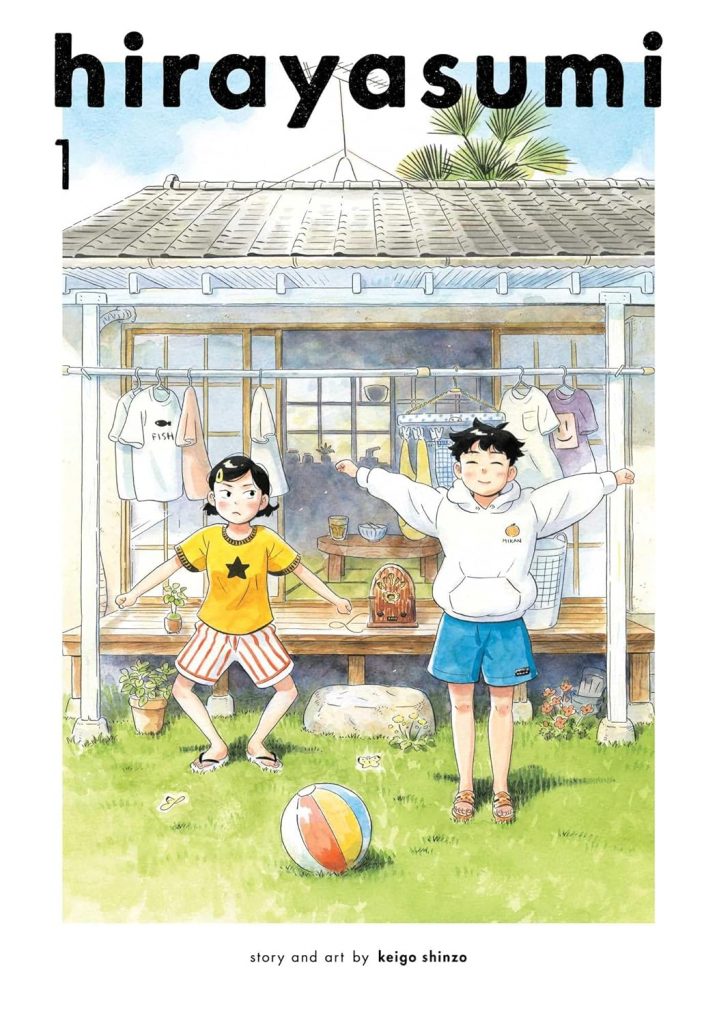
David López (FML, Blackhand & Ironhead): What has me really obsessed this year is Hirayasumi. I’ve reread it twice in a row and I like it more each time.
The story is very well built. It’s an example to follow, how it introduces the characters little by little and at the right time, without rushing, because this manga is about understanding life without rushing, and with a lot of love, because when you stop to look at people’s lives you realize that we all suffer and we all need to get home, the home that “comes” to Hiroto.
If the construction of the story and the script are prodigious, the graphic section is really out of this world. The simplification that Keigo Shinzō has reached is the result of tremendous work, it has a big influence of Fumiko Takano but takes his style from there to the most organic and warm, his love for the details of the house and his interest in the details of the food are spectacular, and also very important: the characterization, his characters are all unique and iconic, for their physical appearance and for their body language.
And as a final note, don’t you think it’s amazing how he draws so many magical nights with so little black?
Trung Le Nguyen (The Magic Fish): I’ll give you two things! I love to look back as much as I love to look forward, so one thing I’m throwing some appreciation on this year is Magnetic Press’s continued releases of Sergio Toppi’s work. They’ve beautifully printed much of his comics work already, and they’re continuing to print some of his illustrative work, too. This year I picked up Harlots and Mercenaries, which compiles his pulpy illustrations of tough guys and femmes fatales, and All the World’s Glories, which features editorial illustrations of famous historical figures. He had a rare eye for composition and texture few can match.
Looking forward, I’m very excited about the upcoming Psylocke series by Alyssa Wong and Vincenzo Carratu. The first issue was so much fun. Wong’s talent for writing characters attempting to strong-arm their way through intense personal issues never fails to delight me, and Carratu’s work is stunning. This is my first time becoming acquainted with his drawings, and I’m very impressed.
Morgan Perry (Marketing Manager, Square Enix Manga & Books): So, as comic fans, we’re not strangers to the idea of a comic series ending. It happens all the time, and whether or not we get a reboot of those characters, nothing changes the feelings you have of experiencing them and their stories for the first time. That being said, it feels really weird to say that my absolute favorite thing from this year was the experiencing the ending to my favorite series, My Hero Academia, which is a series that has meant so much to me personally and professionally. This was a series that I read weekly for 7+ years, which had me running a full gambit of emotions (including the anxiety of thinking my favorite character was likely dead for a whole year), and when you have a long running, massive global hit series, the idea of it ending seems improbable and if it is set to conclude, there’s a lot of pressure on the creator to stick the landing.
And what I think Kohei Horikoshi did well throughout the entire 430-chapter run was never losing sight of the main theme of the series, which was that people are not born equal, but anyone can be a hero or at the very least help shape the world around them by being a force for good. And NO SPOILERS, the final chapter encapsulated that theme and brought everything full circle. It was a complete story driven by one character’s dream to be a hero — and one that wasn’t motivated by dead parents, a dead partner, a dead friend, or some other gritty, tragic event in the first chapter. We can have the complex story. We can keep the mom or mentor alive. We can have the good ending. We can have a finite ending, and that’s awesome. And getting to experience that ending in real time with millions of other fans world wide (on the internet) was so freaking cool even if we were all collectively happy crying and grieving the end of this series that meant so much to us.
Pornsak Pichetshote (The Horizon Experiment, The Horizon Experiment: The Manchurian, Man’s Best): It might be too hard to narrow it down to just one, so how about I pick one trend and one comic?
Because the trend that caught my eye most concerningly – not in terms of quality because the books are outstanding, but content – was the overlapping themes between Marvel’s Ultimate and X-line as well as DC’s Absolute line. Whether it’s the Ultimate line where evil has reshaped the world to suit its purposes, or Absolute where heroes have become the underdogs not the institution or the X-Men where the demise of mutant utopia has left heroes fractured and on the run, I’m a longtime believer that seemingly trivial pop trends can be reflections of larger cultural and social shifts – which got me worrying about how the election would go despite any optimism I was hearing. Is it all the result of a world that’s gotten lonelier and colder since a worldwide trauma our pop culture hasn’t even really acknowledged happened? I’ve no idea, but I do wonder how these stories will respond, reflect, and adapt to the coming years.
On the other side of the spectrum, there’s a comic that gave me unconflicted joy: I’ve kept Michael Walsh’s Universal Monsters: Frankenstein #1 on my desk for inspiration since the day I read it. I have this storytelling maxim that nothing’s more emotional than understanding what someone wants and watching them struggle to either get it or never get it. The way Walsh handled the opening scene of Frankenstein is that idea’s perfect distillation. It starts with a boy wishing his dead dad would come back and then watching his body be kidnapped and used to build Frankenstein’s monster. It’s such a smart, emotionally engaging way into a story we all know and succeeds as this wonderful shot across the bow informing the audience they’re about to read something familiar in an emotionally engaging way they’ve not seen before.
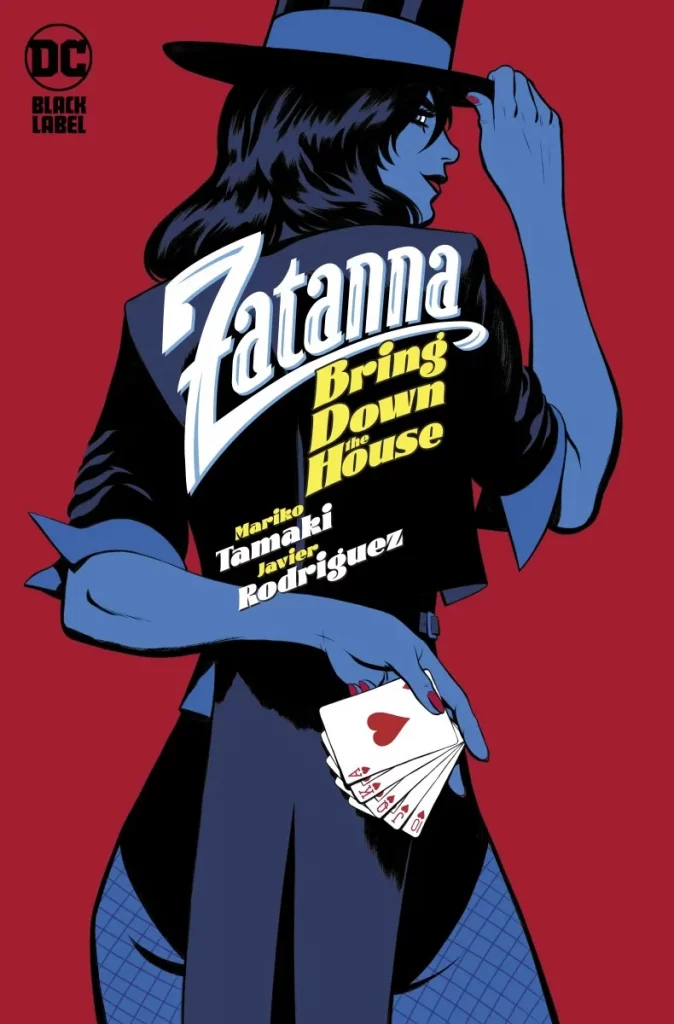
Javier Rodriguez (Zatanna: Bring Down the House): 2024 was very special for me professionally. One of those moments when you put into practice many things that you had tried before here and there but you lacked a project on which to put it all together. That book was Zatanna: Bring Down The House. A comic in which I tried like never before to play with dynamics, narration, and color in a way I hadn’t tried in years. It took me a while to get started, but when it was up and running it was phenomenal.
And all this was possible thanks to working with Andrea Shea, the editor. I wanted to highlight how important it is to work with an editor who is on top of a project. I have never worked with an editor so involved in the work like Andrea. All of her notes were helpful, all of her comments were interesting. Her emails encouraged me in low moments in the most positive way. And I have only positive words for Andrea. I was able to make the book I wanted. With an editor like that in a comic book there is no low moment. Everything comes through. So I have taken advantage of this text that you have asked me to claim her as one of the good things that the year has had.
Of course a book like this could not have been done without a script like Mariko’s and a letterer of Hassan’s level (he is from another world). But I like to vindicate a task like Andrea’s because it was huge, very important and invisible to the readers’ eyes in most cases. 2024 was the year of Zatanna, one of those projects that you know is a before and after in your career. I’m sure you can’t see it from the outside, but well, that’s why I’m commenting on it.
To close the year, destiny has brought me to Deniz Camp, which I imagine will be at the top of my year 2025.
As a comic this has been a year of many re-readings. American, European and Manga have shaken hands on my reading table. I recommend as always what Marcos and Albert are doing in Panel Syndicate.
Jacoby Salcedo (This Land is Our Land: A Blue Beetle Story): I could easily list a bunch of things, but I’ll break the rules and only do two hehe! The first one is the genius idea from DC to make compact comics. Some publishers were already doing something similar before, but they really marketed this and made its own thing. Second thing is the Batman Year One Artist Edition. I have been wanting an artist edition of this book for ages, and IDW killed it. This thing was wayyyy more massive than I realized it would be, which is cool because the art in it needs to be displayed at that size to truly enjoy it. So yeah I would say those two plus, maybe our Eisner nom and the release of our Blue Beetle graphic novel hehe!
Alex Segura (The Question: All Along the Watchtower, The Legendary Lynx): It was Kieron Gillen and Caspar Wijngaard’s The Power Fantasy. It does my favorite thing, which is taking what a talented creator does in work for hire and blows it out in a really special, meaningful way as a creator-owned title. Kieron was doing such fantastic stuff with Immortal X-Men and all his X-Men stuff in the Krakoa Era, and then he blended it with Caspar, who’s just such a dynamic talent. It is one of those books that I save, which is a compliment. I try not to read it the second I get it. I know I’m going to burn through it, and so I save a few issues and then I burn through those issues. But it’s such just a testament to their chemistry together as creators. They did stuff like Peter Cannon: Thunderbolt, which I loved as well, but I just think Kieron’s a special talent, so I read everything he does.
But this one in particular resonated with me because it’s one of those superhero takes that I was amazed hadn’t been done yet. Just this idea of superheroes as basically nuclear weapons. The characterization is spot on. I love historical stuff that hops around modern history. Yeah, it’s probably my favorite new book…that and Absolute Wonder Woman.
Kyle Starks (Where Monsters Lie: Cull-De-Sac, Pine & Merrimac): Man, what a tough question. I’ll say, personally, a highlight for me was having Rock Candy Mountain re-released in a collected edition. It’s one of my favorite books of mine and it was great to see it get enough attention to warrant a new printing. For other people’s work I’m really bad about when things actually come out. I loved Brubaker/Phillips Where the Body Was, I adored Patrick Horvath’s Beneath the Trees Where Nobody Sees but that may be from last year? My single favorite panel I saw this year was in Cullen Bunn and Brian Hurtt’s Midnight Show – Brian has a panel where a dude is tackling a half vampire/half-werewolf and it’s my single favorite tackling panel of all time. Which may not seem like a real thing but it’s a real thing for me!
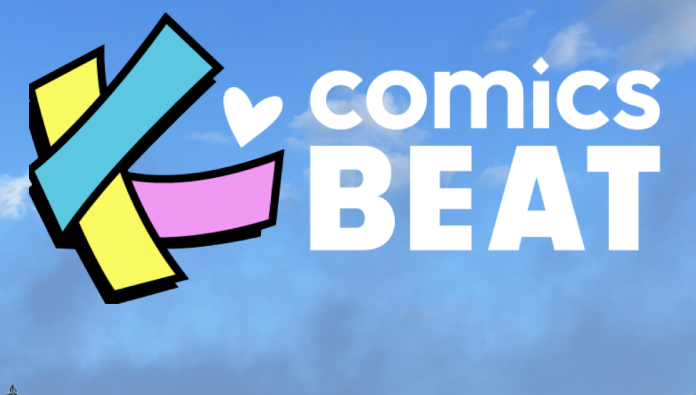
Rebecca “Tay” Taylor (Editorial Director of Inklore): The embrace of Korean comic and webtoons this year across different segments of the industry has been very exciting to see. The launch of The Beat’s K-Comics Beat website, the success of the Solo Leveling animated series, Webtoon’s IPO, Under the Oak Tree being the first Korean webnovel to hit the New York Times Bestseller list—there were so many examples of the US comics industry showing enthusiasm for the Korean wave of storytelling, characters, artistry, and talent. As the two industries continue to collaborate, I’m really excited to see what kinds of comics evolve!
Ngozi Ukazu (Barda, Bunt!: Striking Out on Financial Aid): While Rebecca Mock released Sort by Kudos at the end of last year, I picked up extra copies at Small Press Expo 2024. Few things get me more excited than discussing the indulgent nature of fandom and transformative works, and this zine embodies that frenzied feeling. On top of that, Mock inserts into their comic work an axis that is desperately missing from the autobio space—humor. It sounds terribly pretentious, but when people ask me what my current favorite comics are, I always mention this tiny, indie, journal comic zine, printed on computer paper and that you can only buy from the artist in person.
Joshua Williamson (G.I. Joe, Superman): I’m going to say Beneath the Trees Where Nobody Sees, because it was something I didn’t know anything about. And it was the first time in a long time that I sort of…I’m going to say “discovered a comic” even though I didn’t know everyone was talking about it. The second issue had just come out and I just discovered it. I sat down, I read it, and I loved it. I was able to go into it blind. And I think there’s so often now with comics, you’re not able to go into them blind anymore because there’s so much information. With solicit copy, with covers, with previews, all of it. It’s very rare for you to sit down with a book now and just read it raw. And that was something I read and didn’t know anything about it.
Riley Rossmo was the one who said I should check it out. And I was like, “Alright, cool. Riley and I have similar sensibilities. So I sat down and read the first two issues and was like, “This is one of the best comics I read this year.” Every Wednesday it came out, it was the top of my stack during that time period because it had that energy of just discovering something. It’s been a long time since I experienced that completely blind discovery. So that was something I loved. I love surprises. I love secrets and comics. So for me to find something that I didn’t know anything about and just read and it was just that good…that experience was probably my favorite thing this year.
Caitlin Yarsky (Living Hell): I absolutely loved Kelly Sue DeConnick and David López’s FML #1. It’s the best thing I’ve read in years – the characters feel like such a true representation of teens and the way they see the world. I really liked the dynamic between the mom and kids, the gorgeous punk aesthetic and Clayton’s ripped lined paper captions. Everything just feels cohesive, funny and sweet, and I can’t wait to pick up #2.
Thanks for reading this article. If you enjoyed this feature, please consider subscribing to SKTCHD to support the work that I do and to read more of it. It makes a massive difference for independent outlets like mine.
